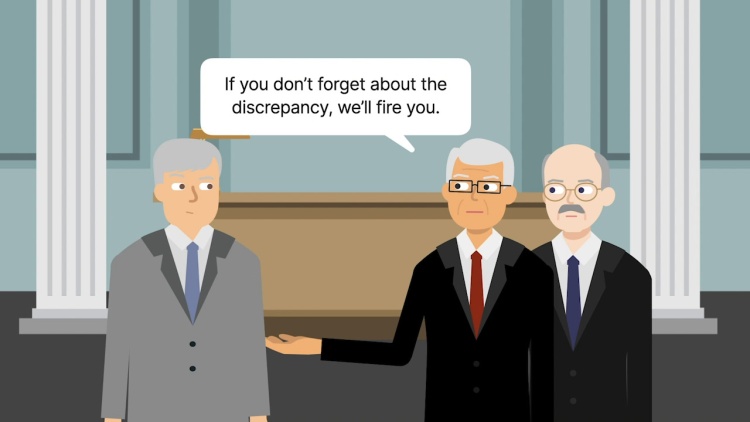Pedro v. Pedro
Minnesota Court of Appeals
489 N.W.2d 798 (1992)

- Written by Sean Carroll, JD
Facts
Alfred, Carl, and Eugene Pedro were brothers and each owned one-third of The Pedro Companies (TPC). The relationship between Alfred (plaintiff) and the other two brothers (brothers) (defendants) deteriorated around 1987. Alfred found a monetary discrepancy between TPC’s accounting records and its checking account. Alfred convinced the brothers to hire an independent accountant, who found a $140,000 discrepancy, but was unable to fully complete his investigation as the brothers refused to give him access to documents that he requested. Around the same time, the brothers began to interfere in Alfred’s work for TPC, impeding with and undermining his authority. They also hired a private investigator to follow Alfred. The brothers told Alfred that if he did not forget about the discrepancy in the books, the brothers would fire him. In December 1987, the brothers did fire him and told TPC employees that Alfred had had a nervous breakdown, which was untrue. Alfred alleged to have had an expectation of lifetime employment for TPC, as he had been an employee for 45 years and his father had worked at TPC until his death. Even Eugene testified that he himself expected to “always work for the company.” Upon remand from an earlier appeal, the trial court found that the brothers had breached their fiduciary duty to Alfred and awarded Alfred a buyout of his one-third ownership in the company. The court also found that Alfred had an expectation of lifetime employment and awarded him lost wages for wrongful termination, as well as attorney fees. The brothers appealed, arguing that there could be no breach of fiduciary duty because the value of the corporation had not decreased.
Rule of Law
Issue
Holding and Reasoning (Norton, J.)
What to do next…
Here's why 899,000 law students have relied on our case briefs:
- Written by law professors and practitioners, not other law students. 47,000 briefs, keyed to 994 casebooks. Top-notch customer support.
- The right amount of information, includes the facts, issues, rule of law, holding and reasoning, and any concurrences and dissents.
- Access in your classes, works on your mobile and tablet. Massive library of related video lessons and high quality multiple-choice questions.
- Easy to use, uniform format for every case brief. Written in plain English, not in legalese. Our briefs summarize and simplify; they don’t just repeat the court’s language.





